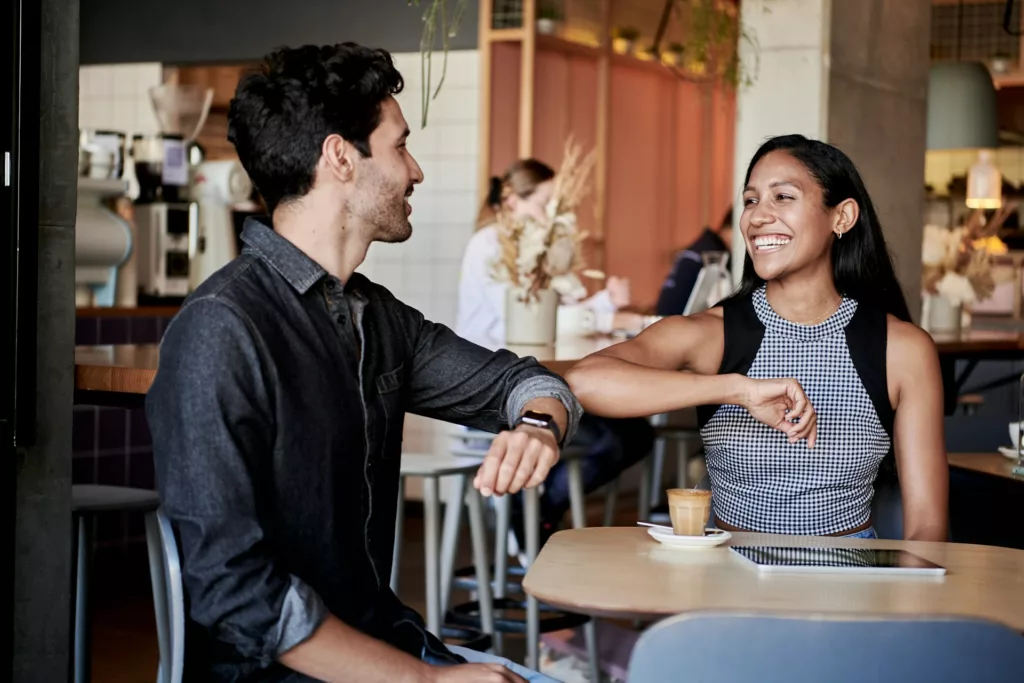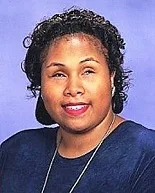Dating 101 When Blind or Low Vision
Adjusting to vision changes can be very challenging. Learning new ways to travel, using assistive technology, preparing meals, and completing household chores can feel overwhelming and stressful. While adjusting, romance may or may not be at the top of your list. Thoughts of having a happy and healthy love life might be the farthest thing from your mind.
Love Life is An Important Part of Life
Having and maintaining a love life is an important part of life, regardless of sight. Interacting with others, making friends, and dating can differ when blind or low vision. Commuting to the location of the date might be a different experience. Once you have arrived, locating the person in the room or restaurant is different. Vision loss does not mean your love life is over or you should stop socializing. There are ways to get out and engage with others to meet that special someone or have a good time on a casual date. So, here are a few helpful hints on how to get back into the dating game when you are new to vision loss.
Tips for Getting Back in the Dating Game

- When meeting a new person you are interested in dating, be mindful of the information you share. Until you get to know the person, err on the side of caution. Instead of a cell number, consider giving an email address. You can create an account for free with providers such as Yahoo or Google.
- Ask friends and family for recommendations. Let them know that you are interested in dating and to look out for you. A friend might know a person who would be a good match and can set up an introduction. This can be a great help because you are not meeting the person without knowing anything about them.
- Play an active role in setting up the date. Don’t let the person you are seeing do all the work. Suggest a restaurant or movie you would like to see. This also ensures your needs as a blind or low vision person are met. Suggest places to go on public transportation routes so you can get there independently. Recommend movie theatres with audio description so you can enjoy the movie, too. Propose a restaurant with accessible braille, large print, or online menus.
- When setting up the date, meet the person at the location. Do not have the person come to your home unless you feel totally comfortable. Since this person is new and somewhat a stranger, it is not wise for them to know where you live until you want them to know. Offer to meet them there and take your ride home, too. You can use public transportation, a cab, rideshare, or have a friend drop you off. Again, you want to maintain some control and only move forward when you feel comfortable doing so.
More Useful Tips
- Let friends and/or family know you are going out with a new person. Once you have met someone you are interested in and have set up the date night, let someone you trust know as a safety precaution.
- Be prepared to have a conversation about your blindness or low vision. This can be a bit tricky, especially on a first date. Go with your intuition about how much you want to disclose at once. Keep things light and straightforward. Be positive and share how independent you are. When confidently sharing this part of your life, you may find your date more relaxed and at ease.
- Try a double date. Sometimes, a double date can relieve the stress and pressure when meeting a new person. There are others to join in on the fun and conversation. Plus, they can visually observe how the person interacts with you and pick up on things you might miss and not see.
- Don’t forget about those traditional places where you can meet people. Although you are blind or low vision, you don’t have to reinvent the wheel completely. Meeting places such as churches, book clubs, and social or civic organizations you belong to can still provide excellent opportunities to meet new people.

Empish Thomas Shares
I met a former boyfriend at some book club events. We kept seeing each other each time and decided to chat. We discovered how much we both enjoyed reading books, and the interaction went from there.
Listen to a special Blind Living Valentine’s Day episode where Harley Thomas and Cara Catton discuss dating as a blind person with Empish Thomas, blogger for VisionAware. Empish shares her experience with dating after losing her sight in her twenties and even shares some tips on dating in the modern age.
Scouting Out the Location and Other Tips for Dating
A contributor shares the following advice:
- Check the lighting and sound of the place for the date.
- Know where the bathrooms are so that you can get to them when needed.
- Decide on what to eat. “Think about what foods you find to be messy and hard to eat normally…The same goes for a first date. I avoid things like linguini or spaghetti with drippy sauces.”
- Think about the dinner conversation.
- Consider how to discuss your blindness or low vision.
- Figure out transportation options.
Considerations for Online Dating
APH ConnectCenter’s Alan Lovell contributed the following advice:
Dating is complicated. Meeting someone online can actually be liberating. There is no potential awkward situation of meeting someone who does not share your desires. Usually, when creating a dating profile, you can give as much detail about yourself as you’d like and describe what type of person you are looking for. Chances are, if someone is reading your profile, they are looking for something similar.
Find Your Dating App
There are many dating apps and websites. By searching the internet, you should be able to find a dating app or website that fits your goals and interests. You can perform a Google search with the word ”dating” along with a brief description of the type you are seeking, and you’ll likely get results that match. Although accessibility issues will most likely always present themselves, more often than not, mainstream sites are at least moderately usable with the use of screen magnification, screen readers, refreshable braille displays, smartphones, etc.
Building Your Profile
Once you have identified a website or app, think about how you would like to present yourself and post a picture. Using a smartphone to take profile photos is a good idea. Smartphone screen readers provide audio descriptions and guidance for taking a good selfie. Consider taking pictures in different settings, such as inside, outdoors, in different lighting, or with different clothing. Even though pictures may not do much good for those of us who are blind, the population at large relies on them to identify with what they find appealing. If you are not confident with your selfie-taking abilities, it may be a good idea to ask a friend or family member whom you trust to take a few photos of you that show off your best features.
So, how will we present ourselves when writing a description? Are you a blind person named Jake, or are you a person named Jake who happens to be blind? Some may choose to put that little nugget right up front. This decision is entirely up to you, but I will share a technique and why I did not initially put that bit of information out there. Unless you have lived in a world with a visually impaired or blind person, there are a lot of preconceived notions that I wouldn’t want to cloud a person’s judgment of me before I’ve had a chance to present myself to them as a man, an intellectual, a conversationalist with many varied interests, and so on. My blindness does not make up who I am as a person. I am a vital contributing member of society who works, has a network of friends, loves the outdoors, walks on the beach, hikes, bikes, and goes fishing, just like many others.
What and When to Share About Blindness or Low Vision
Would you believe on more than one occasion I was turned down for a date when I mentioned that I was a blind guy? I experienced ghosting (when someone stops responding to messages entirely without warning), and one man even said, “I’m sorry, but I need you to be able to look in my eyes and see me seeing you. I couldn’t deal with you not being able to see me”. And you know what? I thanked him for being honest. His substance did not run deep, and I felt like I dodged a bullet. Another reason I hold this information back is that in the online dating world, unless you’re lucky, many conversations will start that do not lead anywhere, and the point would be moot.
It Starts with a Conversation…
Usually, I might attempt to chat the person up for a while first, learn a bit about them, share interests, and answer their questions about me. Often, without realizing it, the conversation may organically open the door to tell the person about my visual impairment. For example, they may send a photo of themselves and want you to comment. This is a great opportunity for you to say, “Oh, I’m sorry; perhaps I forgot to tell you I’m visually impaired. Unfortunately, pictures are not of much use to me. I’m used to it, which is no big deal, and I tend to forget. Could you describe your photo to me?” Or any variation of that works, too.
Getting to Know Each Other
If the conversation doesn’t lead in that direction but indicates that a friendship may be forming or an in-person meeting might happen, I might ask them to talk with me on the phone. If they ask why, I explain that I have something I would like to tell them but want to do so in person. Let them hear your voice, how you sound, and your confidence. You may have a much easier time explaining and answering their questions in person than by text or email. If the person has those preconceived notions of a blind person, I don’t want their first impression of me to be clouded. I want their first impression to be of me, the guy who loves the outdoors, is involved in his community, enjoys white wine, loves his family, friends, dogs, and walks in the park; I want them to see me as someone who also happens to be blind. I want them to like me as a person and not pass up the chance to get to know me just because I am visually impaired. If it’s not a big deal to you, then it shouldn’t be a big deal to them.
In a Relationship When You Lose Vision
If you are already in a relationship and then you lose vision, getting encouragement and support from your spouse and/or partner is essential to the adjustment process. Both of you are trying to figure out how your blindness or low vision will impact your life together.
Here are some suggestions that may help:
- Effectively communicate your needs without being needy.
- Learning how to assert yourself in social situations while seeking support from your sighted spouse and/or partner is important to maintaining a happy and healthy relationship.
- Navigating changes with love, patience, and humor will ultimately help both of you.